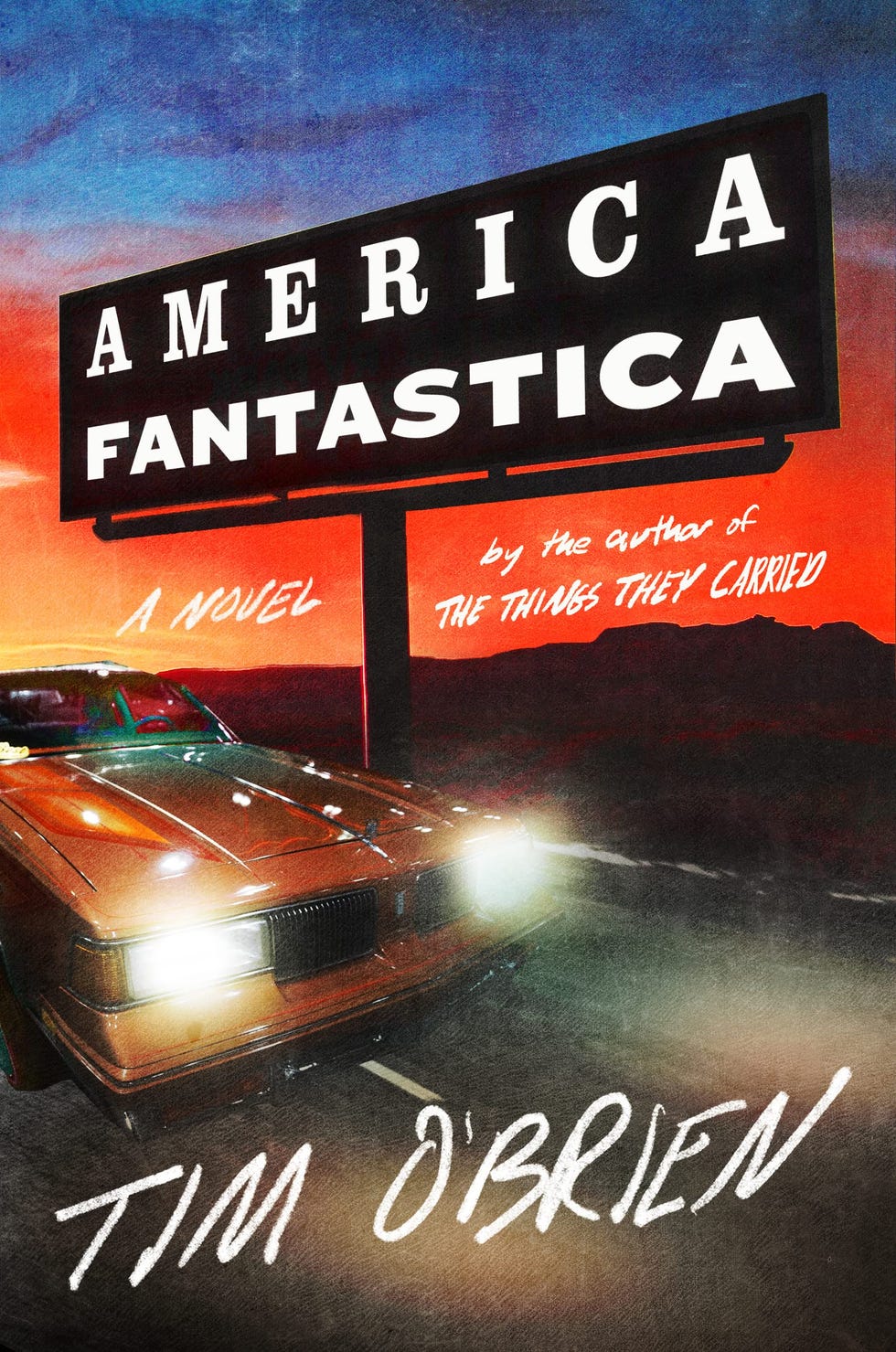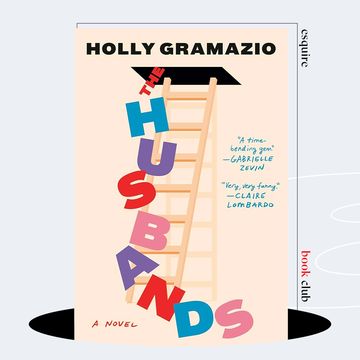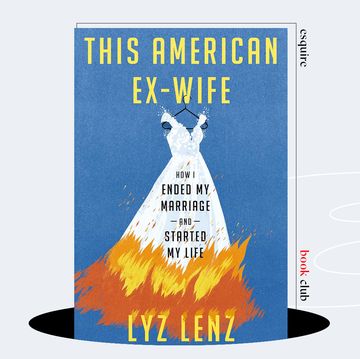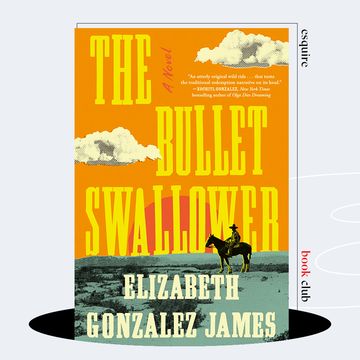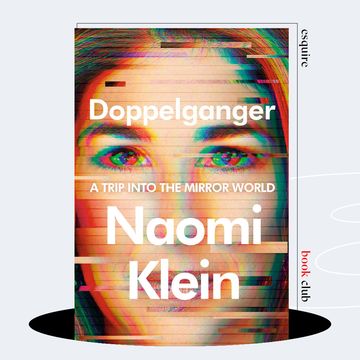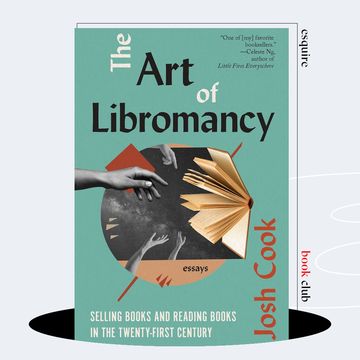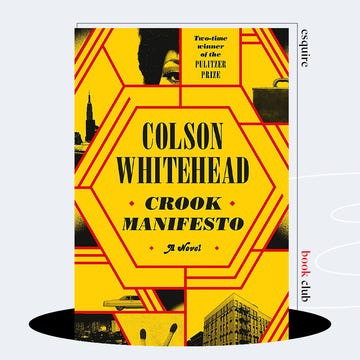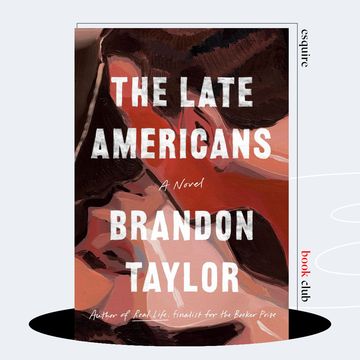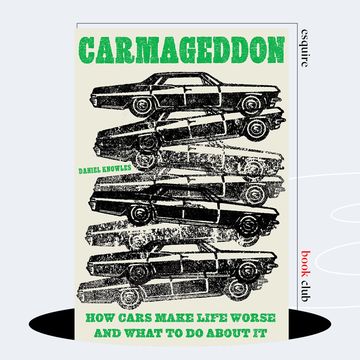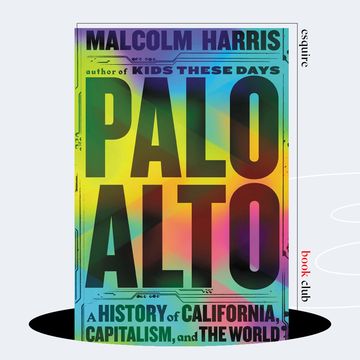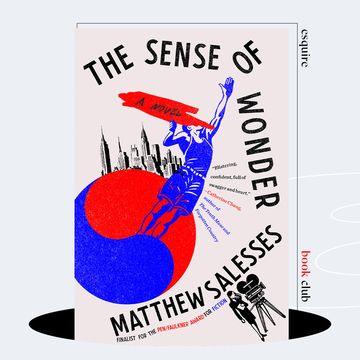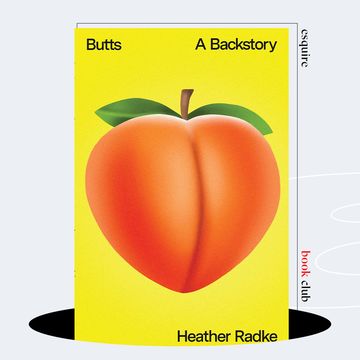“Why should truth matter?” asks a character in America Fantastica, Tim O’Brien’s first novel in more than two decades. It’s the question at the heart of American politics today—and the question that O’Brien has spent his entire career trying to answer.
America Fantastica opens in 2019, when a “lying infection” has taken hold of the nation. Our narrator Boyd Halverson, a compulsive liar and disgraced journalist, now makes a living flooding the internet with “fresh untrue truth content.” Pushed to the brink of despair, he robs a bank, kidnaps the teller (a motormouthed woman named Angie Bing), and lights out across America’s highways with his hostage, bound for Mexico. The getaway morphs into a quest for revenge on the man who tanked Boyd’s journalism career, and soon enough, these unlikely bandits are dodging uproarious brushes with danger. “I think it's funny, but I also think it's kind of nasty—like the times we live in,” O’Brien tells Esquire.
In the age of “mythomania,” O’Brien takes aim at the lies that power this country, and how and why they sustain us. As Boyd memorably puts it: “What’s life without delusion?” This seminal novel from one of our most dogged truth-tellers peers straight into the dark heart of the American psyche, and it's unafraid of the comedy and tragedy staring back. Zooming from his home in Austin, Texas, O’Brien spoke with Esquire about the lies of fiction writers and the delusions that keep us alive. This interview has been edited for length and clarity.
ESQUIRE: You've said, “America Fantastica has been stewing inside me for two decades.” Why do you think it took so long to get out?
TIM O'BRIEN: About twenty years ago, I wrote the first eighteen or twenty pages. Then my first son was born, and I realized that I couldn’t be spending the next five years in a room working on a book, plus coming to the dinner table and being distracted, the way every writer is. So I quit, almost like stopping drinking or smoking—just cold turkey. But the characters really stayed with me, particularly Angie Bing. I think I'm in love with her. I've lived with her for almost as long as I've lived with my wife. She's been in my head—I wouldn't say talking, exactly, but she occupies space. She's small in stature but big in personality, with great convictions about religion and bizarre aberrations. In my head for those twenty years, the book was almost like a moral tug-of-war between Angie and Boyd. She was after Boyd to cut out his endless lying, and he would not buy what he considered her own form of lying: religion, superstition, whatever you want to call it. The tug-of-war had a physical aspect for me, in my head. I felt like they were pulling at each other and in some ways bragging about themselves to me. It's like they were saying, "Get off your ass and write the damn sentences."
When my kids got older, they didn't demand the time from me that they once did. They didn't allow me to be with them anymore. They had their own teenage lives, so I went back to it. It's an interesting psychological thing for a writer—something that's never happened to me before. I think almost every fiction writer would tell you that the characters do live with you. They seem, in many ways, as real as real people. In that way, Boyd and Angie lived with me. I felt as if I was 22 years pregnant with them. Then they got born.
ESQUIRE: You’ve mentioned that this novel will be your last. How did writing it with that knowledge change the writing experience for you?
I've never been in love with the isolation and the frustration and the re-writing and the false trails I've taken myself and my characters down. Way too many cigarettes, way too many late nights, and way too many hours devoted. I'm a slow writer, so for me, a typical work day would begin at 3:00 in the morning. I'd get up at 2:00 or so, do the dishes, then go to work. I'd work until 8:00 at night sometimes to get just a single paragraph written, or at most a page. I'm 77 now, and I'm not sure I have the physical stamina to do it anymore.
I have to quickly add, though, that my wife came home about a week ago and said that one of her good friends here in Austin has an 80-something old mother who that morning had been taking a shower, came out into the bedroom, and found a total stranger asleep in her bed. It was a homeless person. She freaked out, called 911, and the police came. But what if it hadn't been a stranger? What if it had been an old boyfriend, or someone she'd had a dispute with on the subway years ago? What a story! There's so many possibilities to that story. It's going to be hard not to make my fingers go to the typewriter. Maybe I'll finally show some willpower and not do it.
Some of my favorite parts of the book are the litanies of outrageous developments that come along with the spread of “mythomania." One of my favorites was, "Amazon was a distinguished citizen." How many of those came straight from the headlines you were reading, and where did your imagination take over?
I have no idea. I'm always surprised when something interesting happens, because I'm such an uninteresting person and live such an uninteresting life. Things like the one you mentioned would appear out of seemingly zero cloth. There were no threads that connected them. The best I can say is that language kept me going. One sentence leads to the next, and so something I had written earlier led to that. The most fun was inventing those telescopic chapters full of conspiracy theories. The one about the couple who honeymooned aboard a sunken Soviet submarine enjoying kegs of better-than-ever caviar is the sort of thing you read on the internet. It's preposterous. But equally ridiculous stuff appears all over—all you have to do is go in a chat room. I avoided those places for fear of personal plagiarism. I didn't want to plagiarize somebody else's lies. I'm a good enough liar as a fiction writer; I can come up with my own. Where that anecdote came from, I really don't know, but I found it funny, and a mirror for what you see on Fox News: preposterous declarations that you think you should laugh at, but they're taken so seriously.
Some of my favorite books are the ones where you can see the writer having fun—whether it's crafting anecdotes like this one or crafting graceful sentences. America Fantastica has both of those things. It's delightful to sense you enjoying yourself on the page.
That was my chief worry. I worried that people would not enjoy it, even though I was enjoying it—I was enjoying even re-reading my work, which never happens to me. You can't lecture the world. If it doesn't entertain first and carry you through with a compelling story, you can believe entirely in the message and the themes, but it's ultimately a chore. You really don't get anywhere, that way. Fiction has to work on a story level or it doesn't work at all.
Having spent all this time with real and imagined conspiracies, what do you think conspiracies reveal about us?
This is a pet theory—one I touch on at the end of the book when Boyd says, "Reality is a monster." I think lies, including those by conspiracy theorists, come out of an understanding that the world is not the way it ought to be. And so a person says, "I'm going to change it with a lie." I think even on a modest, everyday human level, that's kind of true. I remember at one point when I was in college, somebody asked me if I played football. They meant varsity team football. I said yes, knowing what they meant, but the kind of football I played was tossing a ball around in the backyard. I immediately regretted saying it. For me, the reality was, I could've been a football player, or I should've been one if I'd been 6'4 instead of 5'7. But reality wasn't sufficient, and that lie came out of my mouth. I wish I could go back in time and suck it back in. I think these lies happen on a daily basis. Reality sometimes does feel like a monster, or not what it ought to be.
I think also, on a higher philosophical level, that whole religions are built out of our coming mortality. The loss of identity, the loss of consciousness, the loss of one's own being—it can be intolerable, for millions and millions of people. So whole religions were established. In more minor ways, we deal with it by saying, "I'll live on through my books." I tell myself that sometimes, except then I think, "But I won't be around 100 years from now to hear somebody say, 'What a great book that was!'" So who cares? Or I'll live on through my children. Reaching for the living on-ness—there's a reason we reach for it, because unlike the chipmunks, we're aware of our own mortality. Chipmunks aren't, so they don't build defenses against their own mortality the way human beings do. So are these religious constructions lies? I think they are, sort of. Boyd certainly thinks so. On the other hand, you need fantasy to keep going in this world. The fantasy that tomorrow will be better than today. The fantasy of, "If I marry Jill, everything will be great." The fantasy of hitting the jackpot in the casino—those are dreamers in those places, lying to themselves about the odds.
There are even fantasies about road trips, which organize this book. In reality, let's say you grab your kids, your wife, and you head for Yellowstone in the station wagon. There's all the squabbling in the back seat between your kids, you and your wife can't agree on where to eat, it's hot, the motel sucks, you get to Yellowstone and the lines are eight miles long... The road trip is like an escape fantasy, one I'm guilty of myself. If I can escape Texas and all the crap around me—the political atmosphere here is like breathing polluted air—then things will be better. If I move to Montana or California, things will be better, but I'm going to bring myself to those places.
I think fantasy is a very important theme in this book. Boyd asks Angie, at one point, “What’s life without delusion?” How important is fantasy or delusion to getting by in America today?
One half of the country seems to require it. For the other half, there's a sense of, "How can you believe these things? A man who lost an election won an election—how can you believe that?" I don't think they're lying, exactly, except to themselves. They've swallowed the lie so much that it's infected them with belief. Can you lie if you believe you're telling the truth, even though the truth is a lie? Boyd, at times, believes the stuff he's saying; he knows it's untrue, but he believes it. I'm that way too, about some kinds of things, and I think a lot of people are.
We have our self-images, for example—our self-mythology. The kind of person we think we are. Most of us believe that we're good people, by and large, and yet we erase all the not-so good things we've done from that mythology. Me lying about playing football, for example—that's something I try to eradicate, but it doesn't get eradicated. In that sense, I think fantasy is necessary to make our way through the world. It's the delusions that harm others that I attack in the book. When you start undermining constitutional democracy with lies and with the consequences of lies, like storming the Capitol. Three or four years ago, the New York Times counted 16,000 lies coming out of the mouth of our president. Things like, "My inauguration was the biggest crowd in history." Ignoring the crowds of his own predecessor, which were larger, as well as 52 Super Bowls. Multiply that by 16,000. When you begin undermining liberal democracy, that's harming other human beings.
It seems like a really interesting experiment, to have 20 years to write this book about America. So much has changed in those decades, but what has changed in you? How have your thoughts and feelings about your country evolved during this project?
I remember not liking Ronald Reagan and George W. Bush—thinking nothing could ever get worse, but it did. I'm a little worried about how we'll make a quantum leap to the next level of my not liking what's going on in the country. I'm worried that half our country buys into lies—either spouts them knowing that they're lies, or worse yet internalizes them and believes them. I know lying is older than Babylon, but buying lies, knowing they're lies, seems new somehow. I thought Vietnam was a war that was fought on the basis of containment lies, and self-determination lies, and anti-communism lies. The lie was that the wolf was at the door, and if we don't stop it in Vietnam, it'll be in the streets of Seattle, drinking a Starbucks. The Vietnamese were not going to attack Seattle and drink coffee in Starbucks. I was angry about the same kind of thing, back then, but most of the country, it turned out, was opposed to that war, and got more and more opposed as it went on. I don't see that happening now. I see Trump possibly winning the next election.
In the twenty years you were writing this book, you were also raising two boys. Do you have any advice for parents of sons?
The one thing that I've done since they were born, even when they didn't speak language, was tell them that I love them, every chance I get. They're sick of hearing it. I'll tell them at the dinner table, on the way out the door, while we play football... I tell them a lot. I did it because I have no recollection of my father ever saying "I love you" to me. Ever. I didn't want to leave my kids feeling the way I do, which is wondering, "Did he love me?"
If this is truly your final novel, what comes next for you?
I've got a bad case of carpal tunnel—so bad that when my left hand isn't numb, it really, really hurts. There's an operation that can be done, but the difficulty with that operation is that for the next nine months, I can't pick up anything heavier than a coffee cup. I want to be able to do stuff, as much as I'm able to. I can still use the hand—it just hurts and I drop things. I used to cuss about it and get mad, but now I'm used to it. The thought of trying to type anything, though, I'm not sure I could really do it. Typing you an email, I made tons of mistakes. I re-read and catch most of them, but some I don't. I don't know if I could take that frustration.
One of the frustrating things about writing is that it's not like doing math, where there's a right answer. Even if you write a brilliant sentence, someone else might think it's horrendous. It's all so subjective. In the years remaining for me, I want to fix leaks. I want to prove the leak was fixed, because it's not leaking. Things like that—mow the grass, play golf. I want to do things that are less subjective, and so you're less a victim of subjectivity. It'll be tasks, and I hope it’ll be fun of a different sort.


